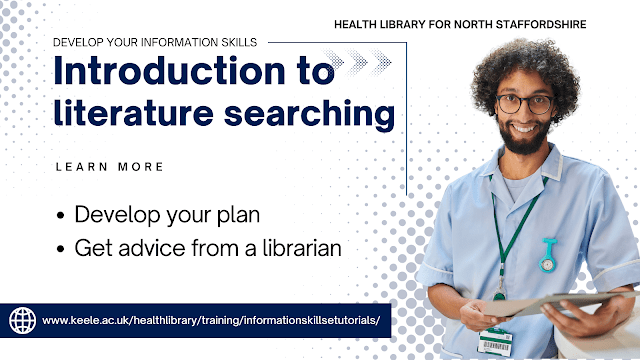As healthcare workers you make decisions based on evidence.
Whether you are presenting arguments in an assignment, discussing changing
practice, researching a new intervention or deciding on the best patient care,
you need the best evidence to help you.
To find the best evidence you need to use your information
skills, so that you can gather the best information as efficiently and
effectively as possible. Developing a literature search plan will remind you of
the steps to follow and help you to be systematic in your searching.
We can help you to develop your skills and set you on the
right path to completing your literature search, to find the information you
need.
Try these tutorials to get started with literature searching:
1. Complete our tutorial Introduction
to Literature Searching. Follow these steps to start your literature search
plan. Print out your completed plan at the end.
2. Save a template Search
Plan. Use this plan to prompt you to think about your search terms when you
need to search for information.
3. Download and update this Literature
Searching Overview and Action Plan to remind you of the steps you need to
consider when you start to search for information.
4. Complete our tutorial Literature
Searching Flashcards whenever you want a quick refresh of the literature
searching steps to follow to create your plan.
5. Listen to the Study Matters podcast. Get hints and tips on good literature searching from a member of the librarian team.
More eTutorials
Find all our online tutorials on the Information
Skills web page on the Health Library website.
More help
Contact the Health Library if you need any help finding the information you need.

Comments
Post a Comment